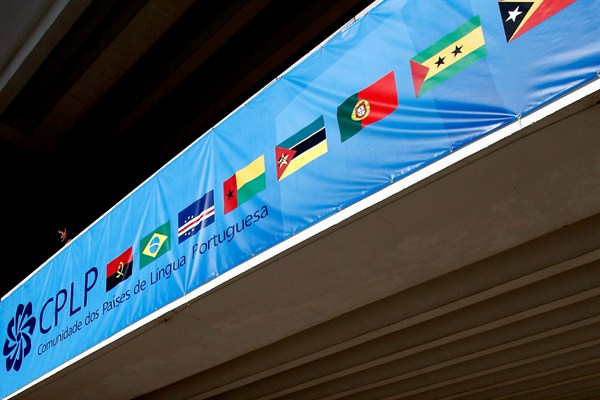Last week, the Community of Portuguese Speaking Countries (CPLP) held its 10th Summit of Heads of State and Government in East Timor. The meeting produced several resolutions regarding scientific and cultural topics, as well as a number of political statements linked to Guinea Bissau’s elections and mutual political support in international institutions. But perhaps the most important decision made at the summit was the acceptance of Equatorial Guinea, currently the third-largest oil exporter in sub-Saharan Africa, as a full member of the CPLP. The four-year process that led to last week’s outcome was far from smooth, as Portugal vetoed Equatorial Guinea’s candidacy in 2010 and 2012. That was no longer possible in 2014, due to overwhelming diplomatic pressure from other members, notably Angola and Brazil. The summit clearly demonstrates that the CPLP is expanding its exclusive focus on political and cultural issues to include economic ones.
When conceived in 1996, after years of negotiations, the CPLP’s original goals were to reinforce cooperation among its members and promote the diffusion of the Portuguese language. Over its 18 years of existence, the bloc has continuously expanded and deepened that cooperation to include defense issues, election monitoring and conflict resolution. But the political and security context in which the CPLP was founded has profoundly changed over the past 15 years. In the past decade alone, several Portuguese-speaking countries ceased internal conflicts and moved toward political stabilization, with some even gaining regional economic prominence. From the end of Angola’s civil war in 2002 until 2008, for instance, the country’s gross domestic product grew by an average of 15 percent per year, strongly supported by energy commodities exports. Meanwhile, Brazil, buoyed by discoveries of vast offshore energy reserves, has become a regional economic and diplomatic powerhouse.
That underscores the degree to which the CPLP’s growing attention to economic affairs is explained by a common denominator linking a significant number of its members: energy. Around 50 percent of the global oil reserves discovered since 2005 have been located within the territory of CPLP members, according to Manuel Ferreira de Oliveira, CEO of the Portuguese hydrocarbons company Galp Energia. Aware of this reality, a February 2014 meeting of the CPLP Council of Ministers in Mozambique decided to institutionalize its energy ministers meeting within the CPLP framework, with the aim of intensifying the political and diplomatic coordination of energy policies. The energy ministerial meetings are expected to take place at least once a year.

